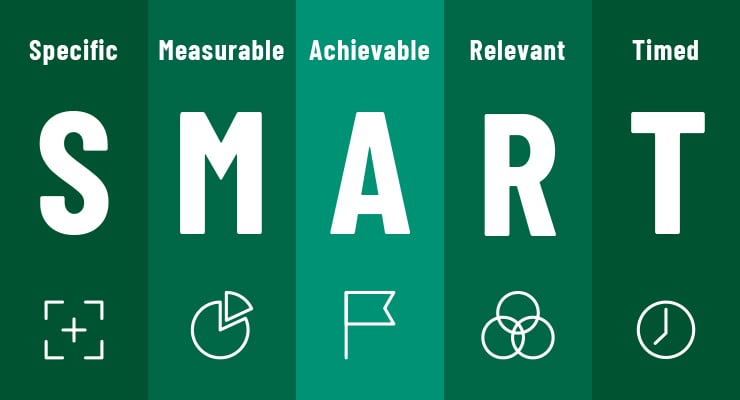College Admissions FAQs: Your Questions Answered
By Rachel Swearingen | Last Updated: Mar 5, 2025

Getting admitted to college is a huge milestone, but to get that admission, you have to follow a few steps first. And those steps can get a bit confusing at times — we’re nothing if not self-aware here at USF.
You won’t always have questions when our admissions office is open. If you’re filling out your application at 2 a.m. (but don’t do that, sleep is important) and have a question, you won’t get an answer right away unless you can find it online.
That’s why we’ve compiled a list of the frequently asked questions our admissions staff gets, and provided you with the answers from some of our experts: Sean Grosso, the assistant director of undergraduate admissions, and Jerome Thomas, our associate director of customer service.
When Should I Tour a Campus?
Don’t wait to schedule a tour if you’re interested in a university, Thomas said. The sooner you go, the sooner you can start feeling it out and determine if you want to be a part of that campus.
“When students visit the campus, we encourage them to visualize themselves being enrolled here, like visualize themselves walking to class, talking to friends, or participating in whatever activity they saw that day.”
What Makes an Applicant Stand Out?
Typically, it’s the numbers that universities like USF look at: your GPA and your test scores on the SAT, ACT, or CLT exams. If your classes show that you’ve challenged yourself with honors, AP, or other courses, that helps too. So, in other words, you need to be preparing this part of your application starting in 9th grade.
“I think one of the beneficial things we do at USF is that we have a college planning checklist for students that freshmen, sophomores, juniors, and seniors can look at,” Grosso said. “They can say, ‘Hey, I’m a freshman. What should I be doing?’ And we have an entire list where we recommend what students should do.”
When Should I Take My SAT/ACT?
To make sure you have everything ready by application time, it’s recommended to take your SAT and/or ACT by your junior year. This gives you time to retake the test if necessary so that you have the best score possible to present on your application. You’ll also have time to get better test scores for merit-based scholarships.
You may want to take both the SAT and the ACT to see which one is a better fit for you. “Students tend to do better on one as compared to the other, and we’ll take all scores,” Grosso said. “We’ll super score them to get them the best score they need for admissions purposes.”
Thomas added, “As you take more exams, submit those scores and keep updating your file until the admission decision is made to give you the most favorable decision.”
What Can I Do If I Had a Tough Time in High School That Affected My Grades?
Typically, USF admission staff is just looking strictly at grades, the type of courses you took, test scores, and the date a student applied (did they apply for the priority deadline or wait until the last minute?). If a student has experienced some adverse circumstances in their high school career, there’s one good way to combat that, Grosso said.
“The best thing that applicant can do is get everything in by priority deadline, and that’s regardless of circumstances or situation,” Grosso said. “There is really no trying to explain beforehand… from our standpoint, it might not be a situation where we’re able to bring them in as a freshman but we do have a wonderful partnership with our local state community colleges through our FUSE program that guarantees students admission if they meet all the criteria.”
How Do I Apply to a University?
To apply as a first-time-in-college student, you can use either the university’s application or complete the Common App, as long as your chosen university accepts it. You’ll also have to submit an application fee or a fee waiver, your self-reported student academic record, and test scores.
If you’re applying as a transfer student, you’ll use the university’s application system and apply based on your level of transfer, which is either lower-level or upper-level. There’s a mid-level as well, but at USF you can’t apply for mid-level — the university will determine whether or not you qualify for that one.
When Should I Start the Application Process?
This is one of the biggest questions Grosso says he hears when he’s out traveling and talking to high school students about USF. While application openings may vary across schools, it’s typical to start thinking about applying during the summer before your senior year. At USF, our application opens generally around August 1 each year.
“October is really when you want to be in the heart of the application process, taking into consideration dates and deadlines and all that,” Grosso said.
At that point, you can begin loading everything you have into the system and begin submitting your self-reported academic record.
“You want the application in the system as soon as possible,” Thomas said.
What Is an SSAR?
A self-reported student academic record includes all of the courses and grades that you’ve taken or will take for high school credit. You won’t submit an official transcript until after you’ve graduated, so it’s important to report this without any inaccuracies.
There are some cases where you won’t submit an SSAR, including if you apply as a transfer student or an international student. If you’re not sure if you should submit an SSAR, reach out to your admissions recruiter.
Am I Considered a First-Time-in-College Student or a Transfer Student?
Students who have completed dual enrollment courses in high school may wonder about this, but there’s an easy way to determine whether you’re classified as transfer or first-time-in-college.
“A transfer student is identified as someone who has graduated high school and then completed 12 hours after high school graduation,” Thomas said.
So, if your hours were all completed while you were still in high school, apply as a first-time-in-college student. If your hours were completed after high school, you’d apply as a transfer student, and there are different levels of transfer students.
A lower-level transfer student is someone who has graduated high school and completed 12-59 college hours, while an upper-level transfer student is someone who has graduated high school and completed 60 transferable credit hours or an associate degree.
What Are the Academic Requirements for a First-Time-in-College Student?
To be considered for admission to a university like USF, there are certain requirements you’ll need to fulfill. Admissions staff will look at your GPA, test scores, and high school credits to ensure you’ve met the standards for completing high school.
Grosso said there have been times when students have applied, but don’t have all of the credits needed to qualify for USF admission. One problem that he says they’ve seen in the past is students missing their foreign language credits, even though high schools do require that for graduation.
What Are the Academic Requirements for a Transfer Student?
First, you need to make sure the college courses you’ve already taken were done at a regionally accredited institution, as most universities won’t accept course credits from nationally accredited schools. To apply as a transfer student, you’ll need your official high school transcripts, college transcripts, and your SAT, ACT, or CLT scores.
For more detailed information based on your transfer level, check out our transfer student admission requirements page.
What Happens if I Make a Mistake on My Application? Can I Fix It?
If you do make a mistake while you’re filling out your application, the best way to fix it is to reach out to the admissions staff so they can help you adjust it.
A common mistake on USF applications is failing to complete the residency part of the application. So for example, say you miss submitting some supporting documentation, or you are a dependent under 24 and turn in your information instead of your parents’ information. Don’t panic: just reach out to admissions. You can also go into your applicant portal to adjust anything.
Should I Wait to Complete Everything Before I Turn in My Application?
Grosso said students often ask this, and the answer is no — don’t wait. Even if you don’t have test scores available yet, go ahead and submit the application. The admissions staff can use your SSAR and then your test scores later on to make initial decisions.
What Are the Different Application Deadlines and What Do They Mean?
Applicants can sometimes get confused by the differences between each deadline, so here are common application deadlines and what they mean for you:
- Priority deadline: This is the deadline to send in your application for priority admission. At USF, if you don’t apply by this deadline, you are not guaranteed admission at the campus to which you applied.
- Scholarship deadline: Submit all of your application materials by this date to be considered for any available merit-based scholarships. These materials include test scores, your SSAR, and application fees.
- File completion deadline: This is the final deadline to submit your required documents to the university to be considered for the term for which you’re applying.
Can My Parents or Other Family See My Application Information?
No, it’s your application. Under FERPA guidelines, unless you’ve provided permission for certain people to see your information, a university can’t release your information to anyone else.
“If a parent calls, there’s only so much we can disclose as counselors,” Grosso said. “We do not release admissions decisions over the phone to students or to parents.”
Why Did I Get Accepted for a Term I Didn’t Apply for?
Large universities like USF get thousands of applicants each year. Sometimes, they may not be able to admit you for the fall term, but they may have space to admit you for the summer term.
Why Didn’t I Get Into the Major I Applied for?
This could be for a couple of reasons: first, not all majors are offered at each university campus. Second, it is possible that you didn’t have all of the requirements that the specific major or college needed to admit you into the program.
“For example, engineering and nursing at the freshman level have specific requirements… they’re considered admission selective programs in which there was an additional review process to make sure they meet the prerequisites,” Thomas said.
Still Have Questions About the College Admission Process? We’re Here to Help.
If you’re still feeling lost in the woods like Kristoff in Frozen 2, don’t fret. Our admissions team is ready to help you with your application-related questions! Give us a call today at 813-974-3350, or send us an email at admissions@usf.edu.


